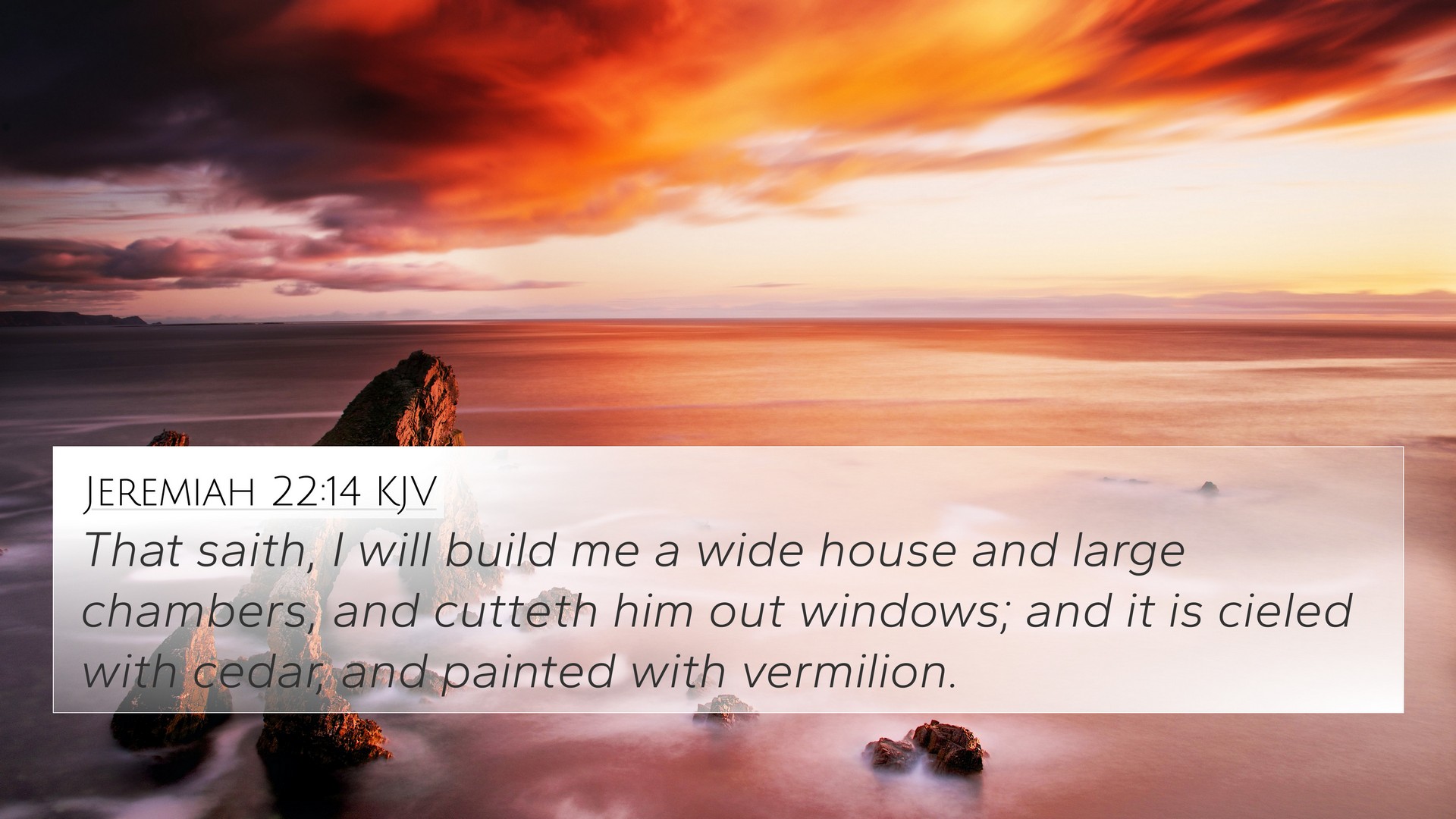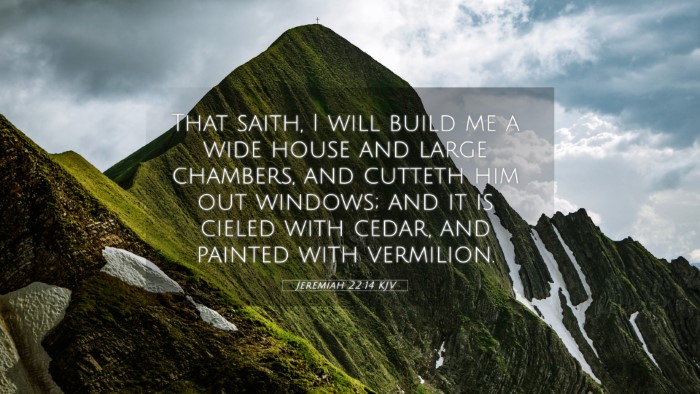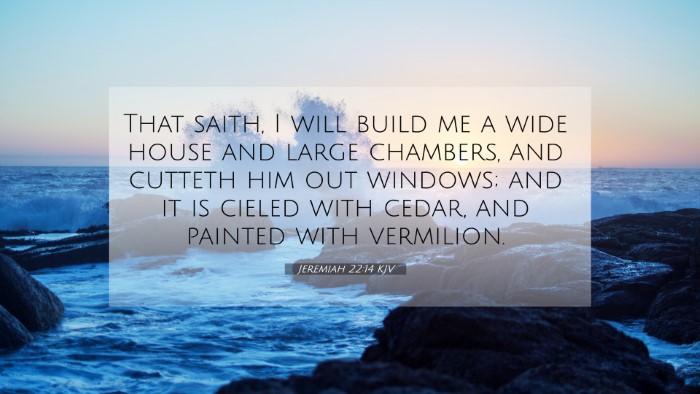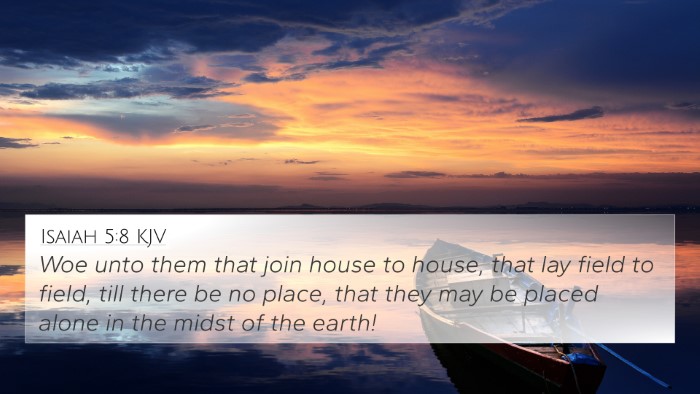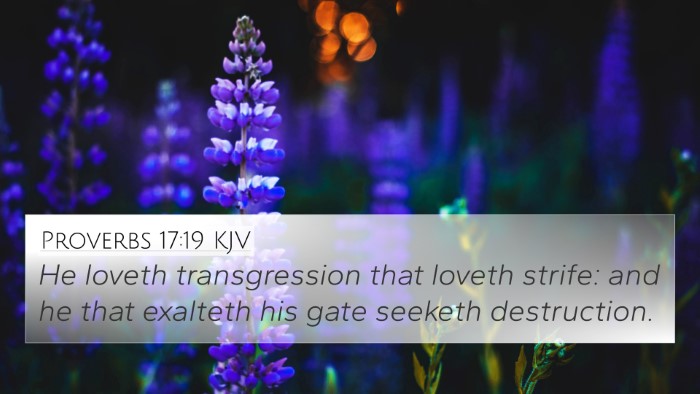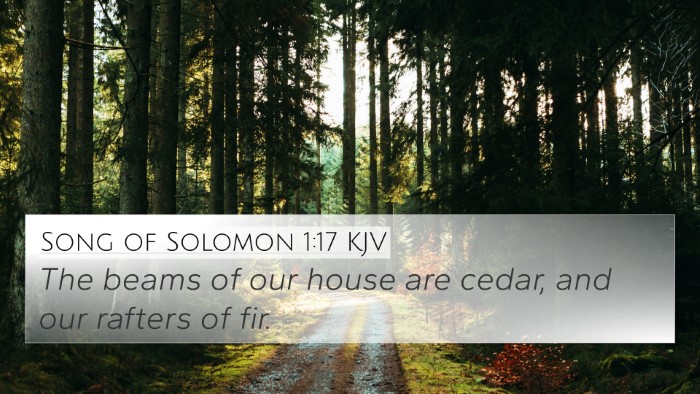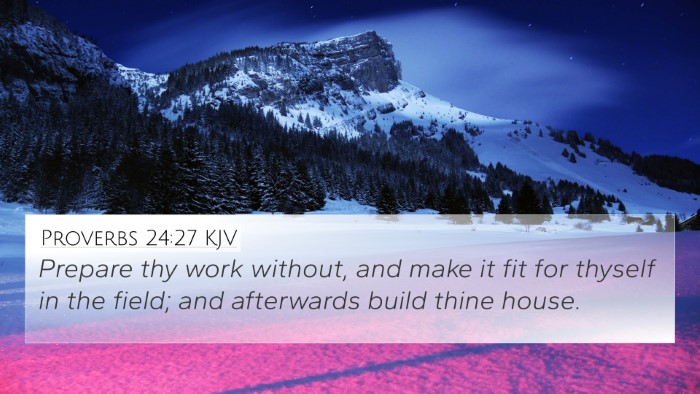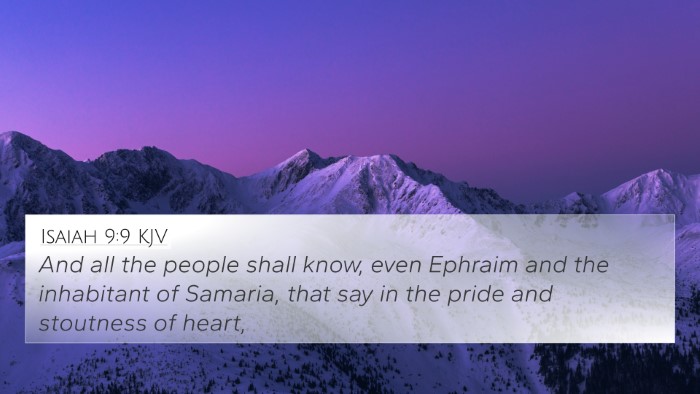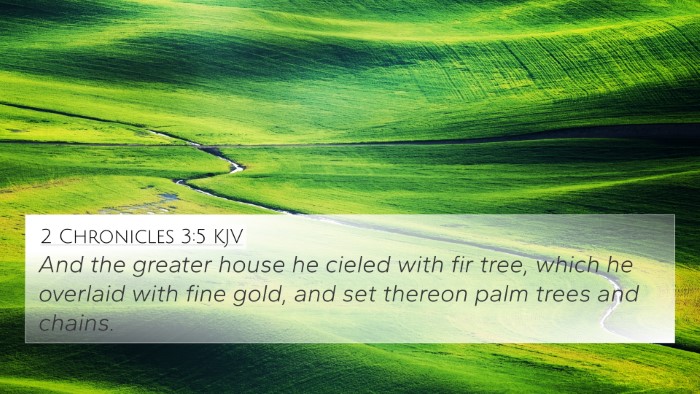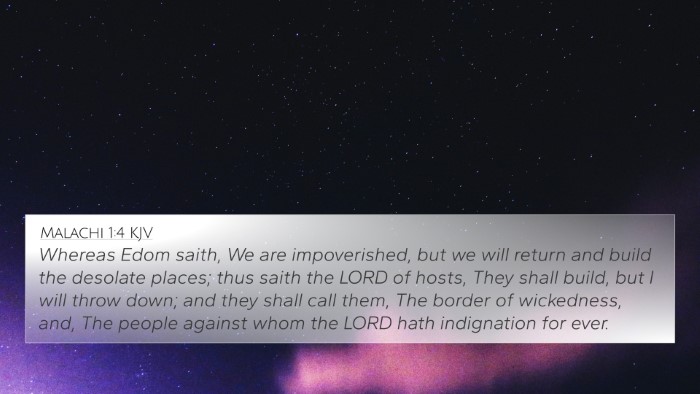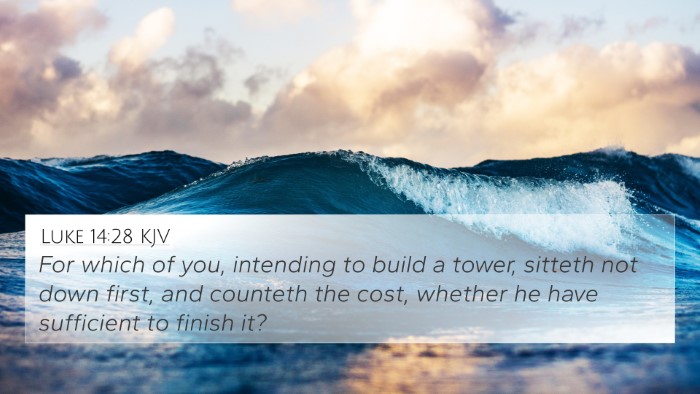Understanding Jeremiah 22:14
Jeremiah 22:14 states: "I will build me a wide house and large chambers, and cut out windows for it, and it is paneled with cedar, and painted with vermilion." This verse reflects the attitude of King Jehoiakim and serves as an important commentary on his character and governance.
Summary of Insights
- Chief Theme: The verse illustrates the vanity and pride of Jehoiakim, focusing on his desire for a grand and ostentatious palace.
- Materialism vs. Spirituality: It highlights the contrast between earthly riches and spiritual responsibilities, calling into question the priorities of those in power.
- Symbolism of Materials: The use of materials such as cedar and vermilion signifies luxury and wealth, showing a disconnect with the socioeconomic realities of his people.
Commentary Insights
According to Matthew Henry, this verse serves to expose the folly of those who prioritize worldly comforts over spiritual integrity. He emphasizes that Jehoiakim’s building ambitions do not reflect godly wisdom and leadership.
Albert Barnes offers a perspective on the self-indulgence of Jehoiakim, stating that his actions are indicative of a ruler who is more focused on personal grandeur than on the welfare of the nation.
Adam Clarke points out that this highlights the hubris often found in leaders, who become so wrapped up in their aspirations for greatness that they neglect their moral obligations.
Cross-References for Deeper Understanding
This verse can be better understood in the context of several other scriptural references that highlight themes of pride, materialism, and leadership accountability:
- 1 Kings 6:15-16: Details the construction of Solomon’s temple, contrasting godly building with Jehoiakim's material ambition.
- Proverbs 16:18: “Pride goes before destruction, and a haughty spirit before a fall,” capturing the essence of arrogance portrayed by Jehoiakim.
- Isaiah 5:8: Warns against those who increase their property at the expense of their neighbors—related to Jehoiakim’s greed.
- Lamentations 3:33: Describes God’s justice against the unjust, suggesting the ultimate accountability of leaders like Jehoiakim.
- Ezekiel 17:15: Discusses the failure of a rebellious king, connecting with Jehoiakim’s lineage and approach to leadership.
- Jeremiah 22:13: Precedes and predicts the outcome of Jehoiakim's actions, providing context for the focus on his extravagant building plans.
- Matthew 6:19-21: Advises against laying up treasures on earth, aligning with the spiritual implications of Jehoiakim’s choices.
- Luke 12:15: Warns to beware of greed, reinforcing the dangers of materialism reflected in Jehoiakim’s character.
- James 4:6: “God opposes the proud, but shows favor to the humble,” a reminder of the pitfalls associated with pride present in Jeremia's description.
- Philippians 3:19: Speaks to those whose mindset is set on earthly things, mirroring the mindset of Jehoiakim.
Conclusion
In sum, Jeremiah 22:14 serves as a poignant reminder of the pitfalls of pride and materialism in leadership. By cross-referencing this verse with others, we uncover a rich tapestry of Biblical insights that urge both leaders and followers to prioritize spiritual integrity over worldly gain.
Tools for Further Study
For those looking to explore connections between Bible verses further, consider using:
- Bible concordance: A vital resource for finding verse references.
- Bible cross-reference guide: Allows for systematic exploration of thematic connections.
- Bible cross-reference system: Enhances understanding of intertwined scripture.
- Cross-referencing Bible study methods: Provides strategies for effective scriptural analysis.
Helpful Keywords for Learning
When searching for related materials, utilize these phrases:
- How to find cross-references in the Bible
- Identifying connections between Old and New Testament
- Cross-reference themes in the Bible
- Bible verses related to pride and humility
